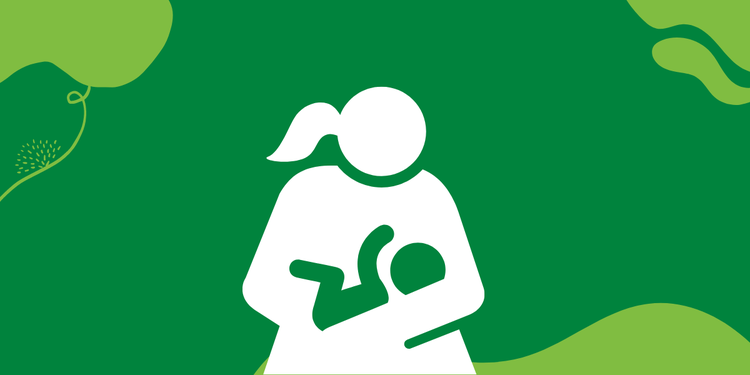FEEDING INFANTS AND CHILDREN UNDER 2 DURING EMERGENCIES
Babies and children under the age of two are particularly vulnerable in emergency situations.
During the entire period of the stressful situation, it is extremely important to continue breastfeeding.
Stressful situations rarely affect milk production. The quality of milk does not change due to feelings of anxiety, panic or stress. If you notice a reduction in flow, breastfeed as often as possible to increase production. Experts recommend feeding the baby on demand: as often as the baby wants, but at least 8-12 times a day, for as long as the baby wants.
Why is it especially important to continue breastfeeding in an emergency?
In an emergency, direct physical contact with a child helps them feel safe. The hormones produced during feeding also increase the mother's sense of peace and security.
During periods of stress and anxiety, the immune system may be weakened, so it is important to continue breastfeeding the baby to ensure full protection of its health. Even mothers whose diets are unbalanced or limited can still continue to breastfeed effectively.
Do not hesitate to ask for an extra portion of food or water - it is necessary for you and important for the health of your child. Remember that if you do not have access to any food, then a child under two years of age can be fed exclusively with breast milk to keep him alive.
Can I breastfeed my child if he/she has a disability?
Breastfeeding is really important for all children, but is especially important for children with disabilities. Breastfeeding is really important for children’s growth, children’s nutrition, and children’s brain development. Many children with disabilities are actually able to breastfeed, only a few are not able to breastfeed. And those who can’t, can be fed expressed breastmilk, because breastmilk is really the best.
What should I do if my baby cannot suckle or is not with me?
If your baby is temporarily not with you, express milk by hand or with a breast pump at the same interval your baby feeds. Abrupt interruption of breastfeeding can cause complications such as hardening or inflammation of the breast.
Breast Pumping
When pumping, remember:
What to do if you cannot continue breastfeeding
Try to restore your breastmilk supply:
- Let your baby nurse on your breast, even if there is no milk
- Drink more water
- Massage the collarbone area
- Rest
- Take warm showers
- Eat your favorite, filling foods
Try Formula Feeding:
- Boiled water, at least 70 degrees Celsius, should be used to prepare the powder mixture to kill any bacteria that may be in the water or powder.
- Mixtures should not be prepared in advance. If there is no other option, they should be put in the refrigerator after cooking. The bottle with the mixture can then be stored in a cooler bag with an ice block for a maximum of 4 hours or in a bag for a maximum of 2 hours.
- If you're formula feeding while traveling, avoid using bottles. Cups are easier to clean and dirty bottles can make your child sick.
- Children older than 6 months can be fed full-fat boiled or pasteurized cow's or goat's milk, as well as introduced to complementary foods.
If none of the options above are available to you, please seek medical help.


Explore the Bebbo app from UNICEF, it is your pocket partner in parenthood. Bebbo offers a wide range of parenting tips and other useful resources for parents and caregivers of children aged 0-6 years old, including topics like breast pumps, baby weaning, learning, toys, child protection and much more. It’s available in multiple languages, including Ukrainian. It is free to use and you can download it on Google PlayStore / Apple AppStore.



